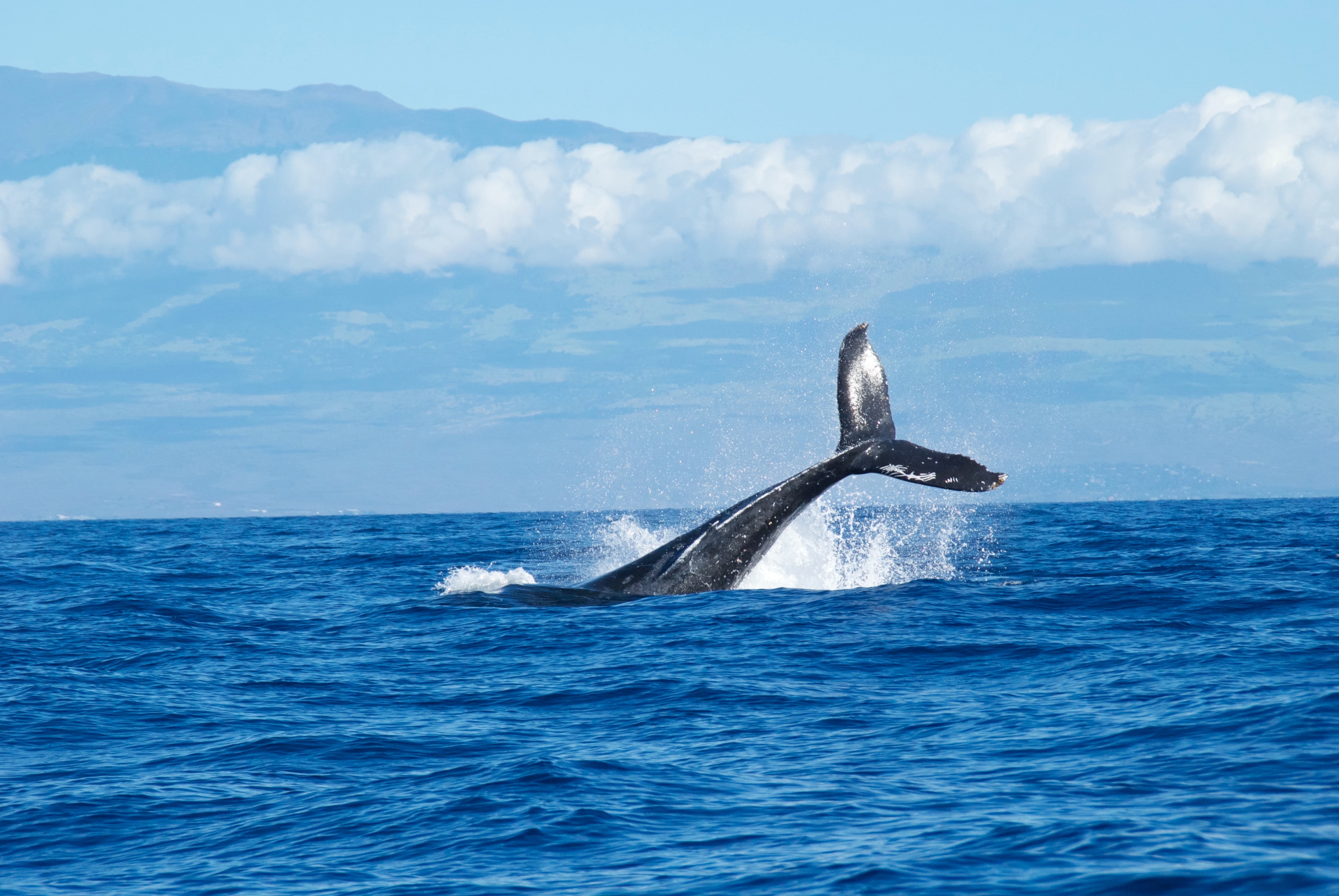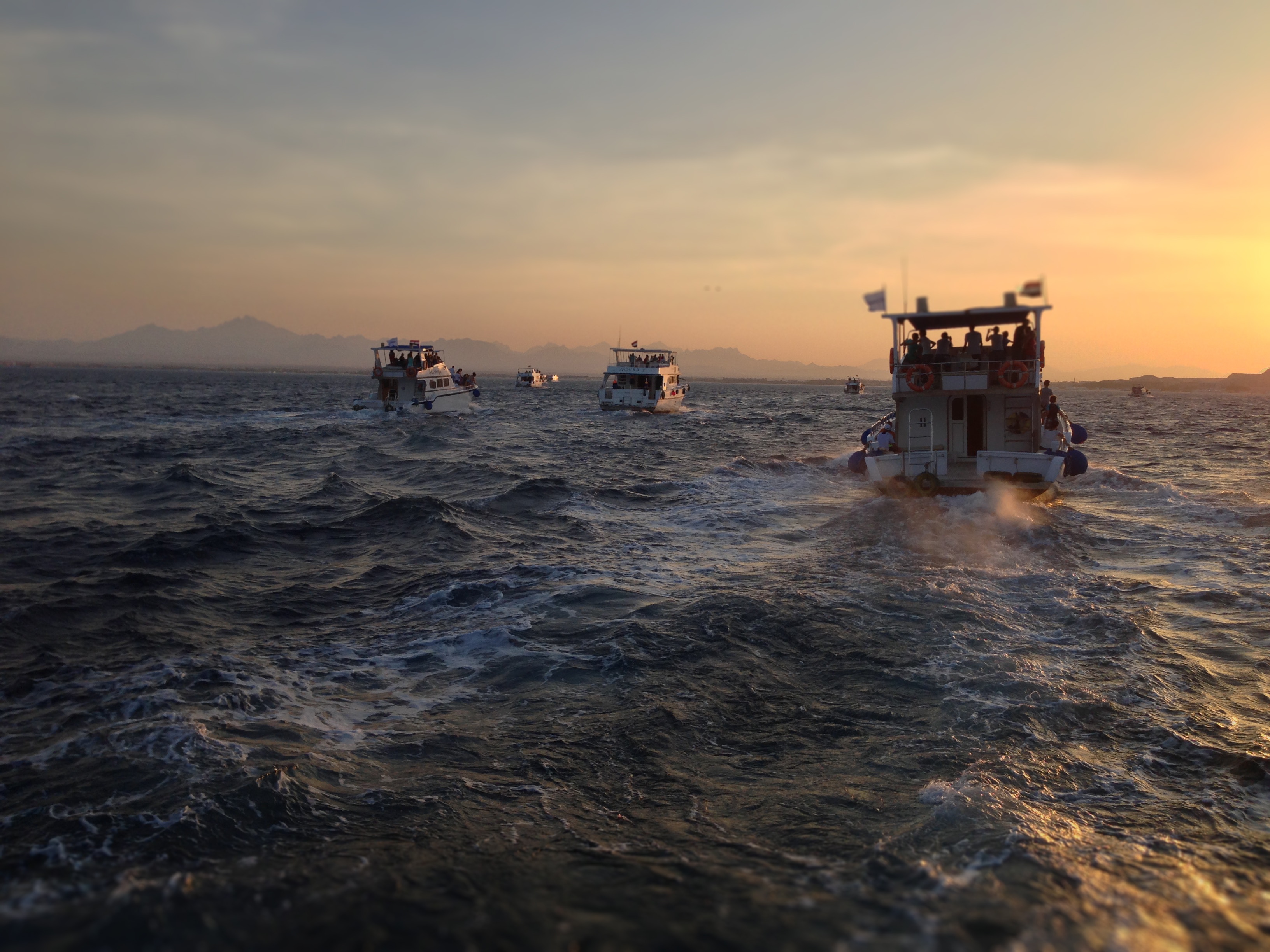What is the first thing that comes to your mind when you think of ocean pollution? It might be the plastics; they tend to get a lot of coverage these days. Or maybe it’s coral bleaching caused by global warming? These are–of course–devastating causes that urgently need our help, but there’s another one lurking in the depths: noise. Noise pollution of all sorts is causing chaos beneath the surface, and it’s vital that we start talking about it. From fishing vessels to the tourism industry to big players like seismic testing for oil drilling, here’s what you need to know and what you can do to help.

Sound travels approximately 5x faster in water than air. There’s variation depending on depth and water temperature, but basically, it’s rapid. This is incredibly useful to sociable animals such as whales that use sound to communicate with one another. They use whistles and pulses to socialize, and it is believed that individual calls are distinguishable amongst the pod, thus adding to each whale’s personality.
As well as communicating for social activities, toothed whales (including dolphins) use sound in the form of echolocation for hunting. They do this by producing a series of short clicking sounds that are reflected off of whatever objects are around them (this might include prey, the sea bed, etc.), and the information is fed back to an area called the “melon” in the head of the animal. This is what allows them to hunt successfully and get that all important meal.
In addition to all our charismatic whales and dolphins, there is increasing evidence that other marine organisms are using sound as a means of communication. And with us only having explored a minuscule fraction of the oceans, there is likely to be more evidence that emerges in the future of other organisms’ use of noise in their behavioral ecology. This is all well and good until something steps in and threatens their flow.
You guessed it. We’re polluting the oceans in a dynamic conglomeration of ways, and one of them is by being noisy. You know that feeling of hearing a car alarm go off in the middle of the night and waking up irritated and/or startled? Or perhaps trying to fall asleep the night before a big meeting and not being able to tune out the bass from the party in the apartment above? Or trying to call your friend’s name in a busy club, but having them unable to make out your voice over all of the other people doing the same? These are the terrestrial and human equivalents of what we’re doing to our marine life: causing stress and disturbance and detrimental health effects.

First up, there’s the fishing industry. Charles Clover wrote an excellent book titled The End of the Line, all about the devastating effects that overfishing is having on our seas. The truth is that we’re simply so efficient in our technological advances that the fish stand no chance of survival. We’ve tampered with the laws of nature, and we don’t give them a fair chance at running (well, swimming) and hiding. From longline fishing, in which nets are left floating for miles across the open sea, to purse seine nets that encapsulate an entire population all in one hit, we’re hunting and we’re winning. So, on the one hand, you’ve got these giant nets scooping up entire populations as well as bycatch (unwanted fish accidentally caught and tossed back dead into the sea), and on the other hand, you’ve got the noise caused by all these fishing vessels in our seas around the world. Combine the two and you’ve got mass degradation. Save our seas by reducing your fish consumption (not a problem if you’re already vegan, eh?) and encouraging friends and family to buy fish caught by pole and line–or better yet, help them find delish fish alternatives like tempeh fish and chips.
Secondly, we’ve got the seismic surveying. This is most commonly used by the fossil fuel industry to seek out resources on the sea bed. It uses loud pulses of compressed air fired down towards the sea bed. This can deafen animals, cause them to die from stress, and disturb important communication that they’re simply not loud enough to “talk” over. Ever tried shouting when you’ve lost your voice? It’s really easy to point the finger and say, “well, we’ve got to stop using fossil fuels then” and yes, obviously, we do for their significant effects on climate change, but seismic surveying is also used for marine construction such as that of wind farms–a renewable energy source. So it’s a tricky one really, with not knowing where to draw the line. Floating wind farms seem like the logical choice, but these are still an up-and-coming resource and are unlikely to become mainstream just yet due to the sheer cost of investment.
The last major player is the ever-growing tourism industry. From small catamarans and jet skis to gigantic cruise liners, there are more of us on the ocean than ever before. Encouraging eco-tourism so that we can see and experience the magic of the sea is one thing and it plays an important role in conservation, but mindless sailing on such a large and intense scale is noisy. I can’t preach about staying off the seas because I’ve spent my life on them and find nowhere more alluring. But it’s worth being aware of how you’re affecting your environment and taking special care if you know there are schooling fish or a pod of cetaceans in the area. Be mindful, always.
There’s so much more research still to be done and many solutions still to be created by bright minds to remedy these problems. The oceans are vast and vital to our survival as a people. We need to become more aware of all the ways we are affecting them in our daily pursuits.
Also by Kat: Coral Reefs Are Dying—How You Can Help Save The Nurseries Of The Ocean
5 Creative Drought Solutions That Will Give You Hope For #TeamEarth
Related: 3 Keystone Species We Can’t Live Without—Here’s How You Can Help Save Them
Noise Pollution Is A Top Cause Of Health Issues, For Real. 6 Ways To Get Quiet
Get more like this—Subscribe to our daily inspirational newsletter for exclusive content!
__
